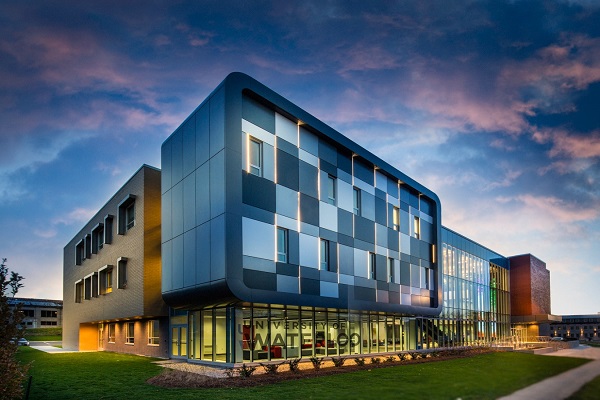University of Waterloo: Hack the North 2022 was about learning as much as winning
When Pira Ravikumaran arrived at Hack the North on Friday night, he admits he felt a little nervous.
As a fourth-year Chemical Engineering student at Waterloo, he was new to coding and wasn’t sure if his lack of experience would be a problem. The 36-hour turbocharged (and highly caffeinated) event brings together over a thousand students, experts and sponsors from around the world to Waterloo’s campus each year to code, compete, learn and network.
How would Ravikumaran keep up at Canada’s largest hackathon?
He shouldn’t have worried. After joining a team with other hackers that night, he explained he still had a lot to learn about computer coding — but he was ready to try. To his relief, his new teammates were supportive, especially a professor from Barcelona who runs hackathons in Spain.
“She said, ‘Don’t worry. The whole point of you being here is so you can learn,’” says Ravikumaran on Saturday afternoon, standing beside a table of free powder-blue t-shirt swag. “So that’s why I’m here.”
His story is one of many that played out over the weekend from Sept. 16 to 18. Created by students for students, Hack the North is known as one of the world’s preeminent hackathons offering aspiring developers, analysts and software engineers opportunities to rub shoulders with experts, attend workshops and speaker panels, and even try out brand new software. All while competing to create the most unique software and hardware projects from scratch.
And yes, it’s normal for hackers to pull all-nighters near tables heaped with chips, goldfish crackers, bananas and drinks or slip into a sleeping bag for a few hours of shuteye near dawn.
Stephanie Mills (BASc in progress), CEO and founder of CodeGem, an early-stage start-up launched at Velocity that offers productivity, collaboration and engagement tracking software, remembers when she used to attend hackathons. But last weekend, she experienced a full-circle moment: serving on the panel of judges beside other tech superstars.
“It feels really weird to be on the other side!” Mills says. “I learned a lot from hackathons. When I talk about CodeGem, hackathons are totally a part of the company’s story. I think they are wonderful experiences, and I hope more students try them.”
She has advice for students who want to attend next year: brush up on your communication skills. Hacking is as much about the pitch as the technical side.
“The people who win the hackathons are generally the ones who can tell the best story,” she says. “The judges aren’t opening code and making sure your syntax is correct. We’re trying to understand if your project can translate into something useful.”
Other Waterloo alumni and Velocity entrepreneurs were speakers and judges on site too, including Moazam Khan, founder of Curiato; Danielle Rose, CEO of Ceragen; Myra Arshad, ALT TEX CEO; and Evelyn Allen, co-founder and CEO of Evercloak.
“The people who win the hackathons are generally the ones who can tell the best story”
“Every Velocity founder was helped by those who came before them and pays it forward to the next group,” says John Dick, director of Velocity Campus, which sponsored the event along with the University of Waterloo’s math and engineering faculties. “When Velocity founders and advisors participate in events like Hack the North, it is simply another demonstration of a prodigious culture that provides students the opportunity to gain insights into the founder journey, receive mentorship and build connections.”
Xiao Zhang, a hacker and second-year Computer Engineering student at Waterloo, wouldn’t mind winning a prize for his app that helps manage long lines for students wanting to talk to professors or teaching assistants after class. But that’s not his main driver for being at Hack the North.
“I think learning new skills is more important than winning any prize,” he says, explaining he knew he couldn’t stay up all night working on the weekend anyway. He had seven hours of lectures on Monday to prepare for.
Organizers and volunteers were there for the learning experiences too, from Kaiden Lee, a local high school student eyeing Waterloo as a top pick for post-secondary school, to Jennifer Tsai a student organizer on the sponsorship team. As a Biomedical Engineering student who just finished her second year, she wanted to meet a community of people just as passionate as she is about helping other students learn.
Looking around the room in the Engineering 5 building, as students and presenters rush past, she admits the last six months of work on Hack the North were hard and chaotic at times, but so worth it.
“Honestly, it’s been one of the most rewarding experiences,” she says. “To put on this huge event for many hackers interested in technology and guide their career path? The reward is just priceless.”

